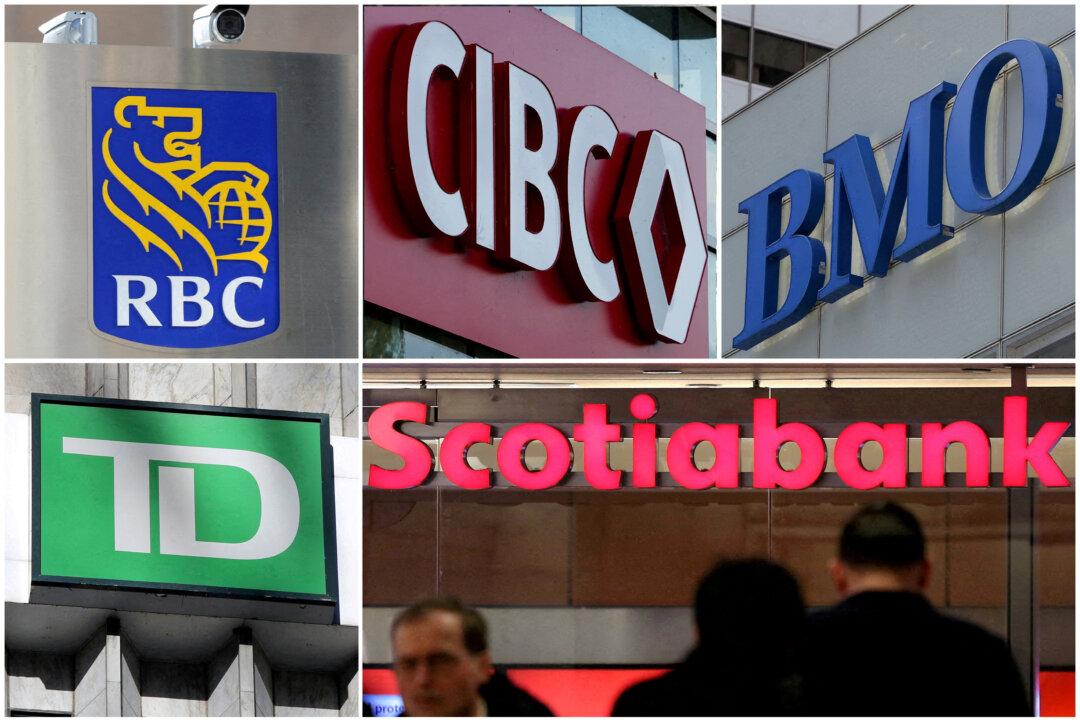TORONTO—Canada’s big six banks are expected to build more credit loss provisions as they brace for uncertainty surrounding the U.S. tariff threat, analysts said, potentially weighing on first quarter earnings and beyond.
The banks have already been putting aside more funds to cover any souring loans due to continued high Canadian unemployment, which has fuelled investor concerns despite some more robust economic data recently. Also called provisions for credit losses, a rise in those funds dents profits for the banks.





